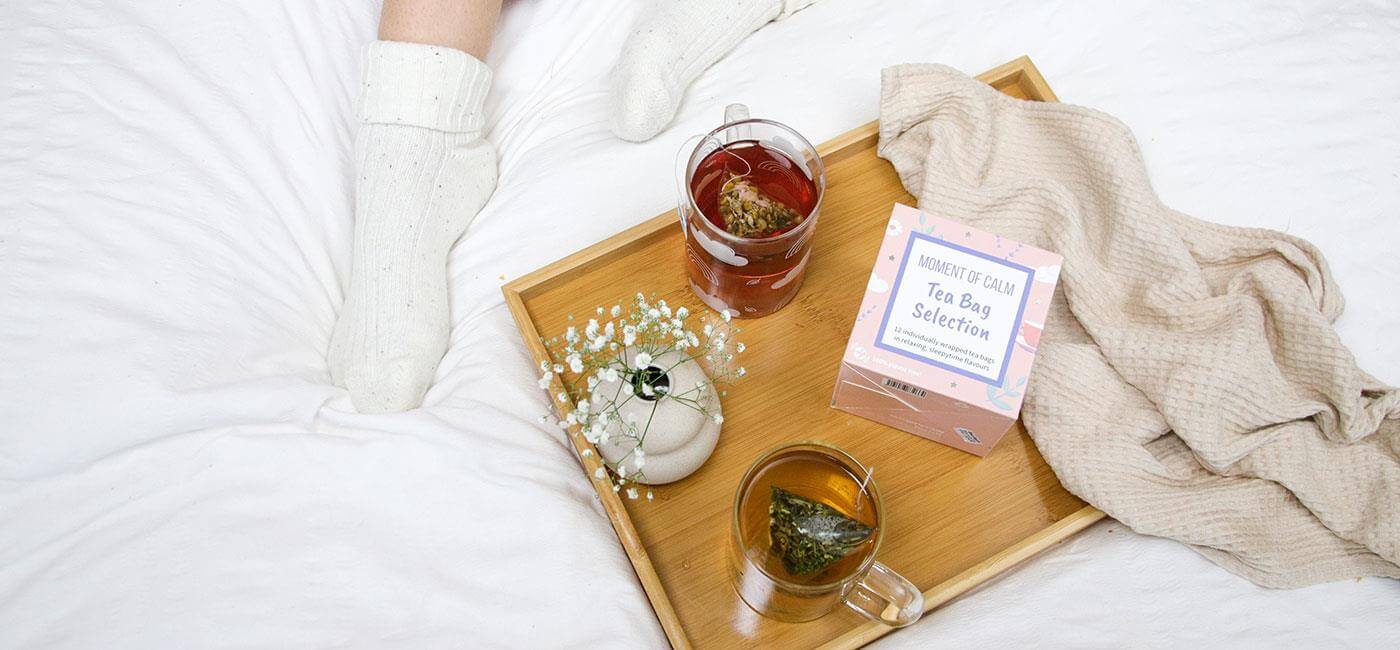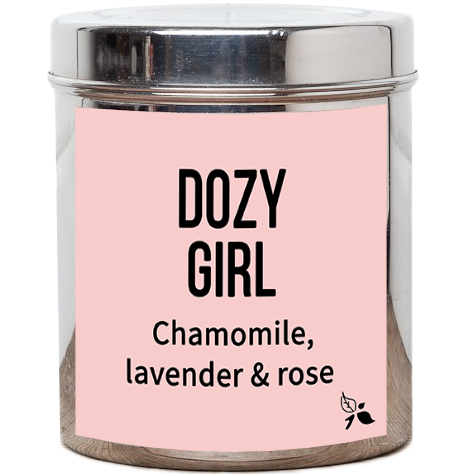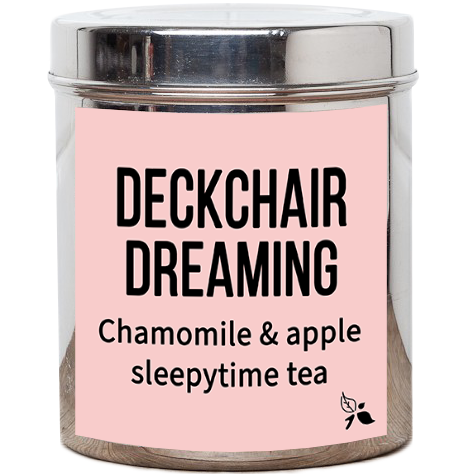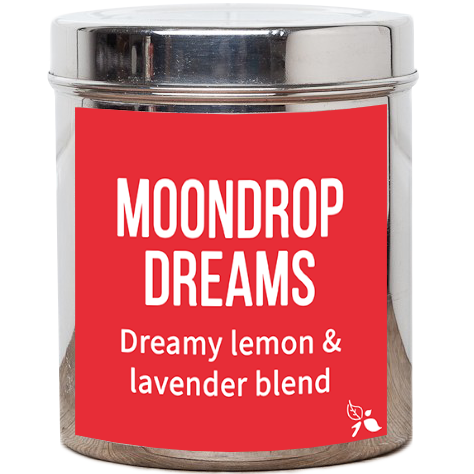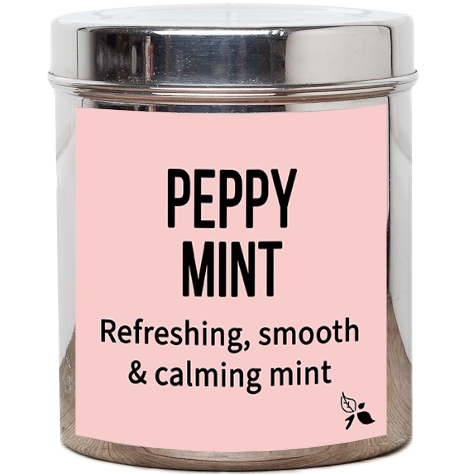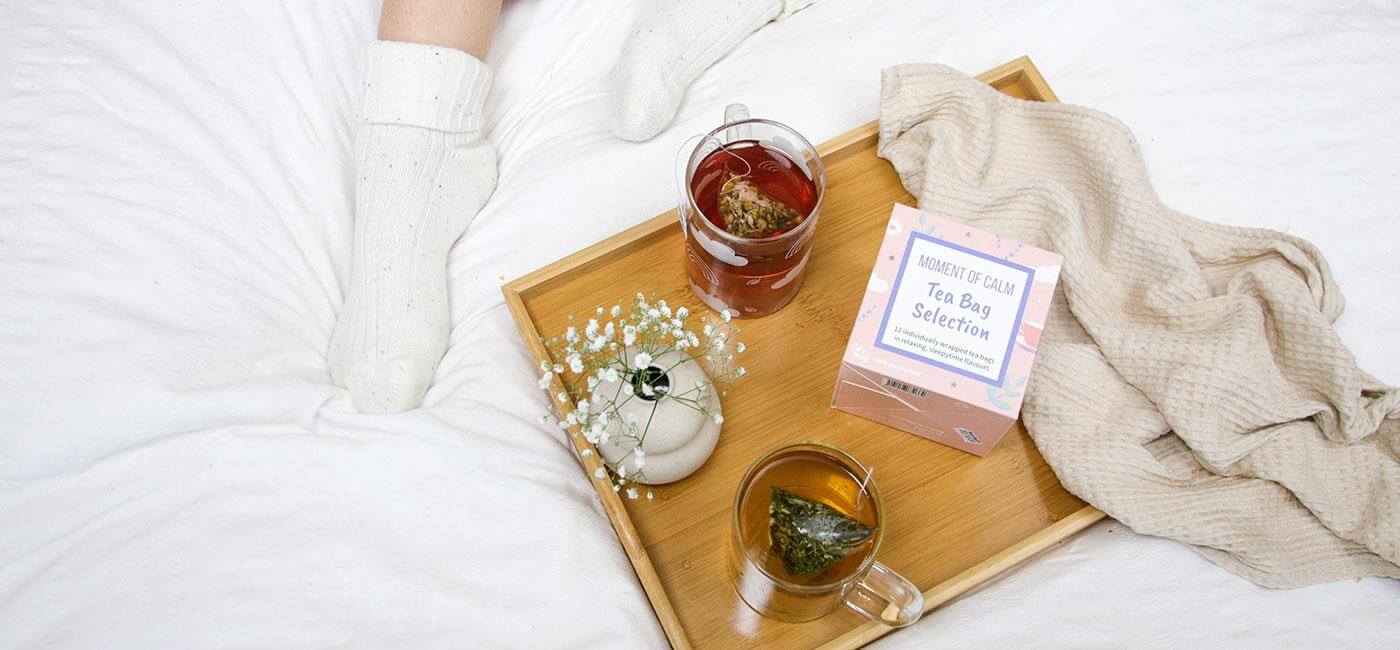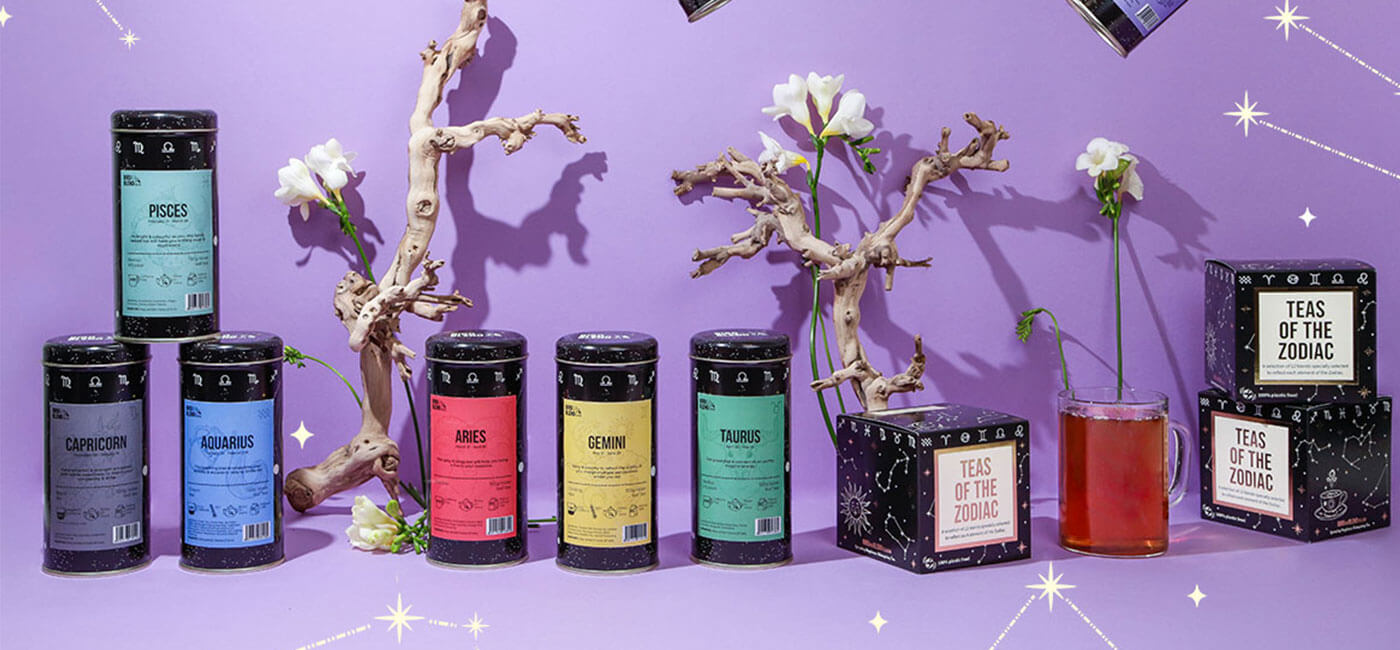In a world that never seems to slow down, achieving a good night's sleep has become more important than ever. And yet, more and more people find it harder to achieve. Almost 1 in 5 UK adults struggle to get enough sleep, with stress and worry as the most common obstacle to a good night’s sleep. (1)
This quest for relaxation and tranquillity has led us to explore natural remedies. One star in this soothing constellation is the realm of sleepy teas. Let's delve into the magical world of bedtime elixirs, with a focus on two botanical champions – lavender and chamomile – and explore the impact of sleepy teas that make bedtime a breeze, backed by insights from The Sleep Charity (www.sleepcharity.org.uk).
What is in Sleepy Tea that makes you feel Sleepy?
The Botanics
Lavender, with its enchanting fragrance and calming properties, has been a staple in the world of relaxation for centuries. It's not just a pretty flower; it's a key player in the sleepy tea game. Inhaling lavender has been shown to reduce heart rate and blood pressure, promoting a state of relaxation, conducive to sleep.
In sleepy teas, lavender works its magic by imparting a subtle yet distinct floral note to the brew. Its aromatic compounds, such as linalool and linalyl acetate, have a calming effect on the nervous system, helping to alleviate stress and anxiety. As you sip on a cup of lavender-infused tea, you're not just indulging in a delightful beverage – you're signalling to the brain that sleep is on the way.
Chamomile, another heavyweight in the world of sleepy teas, brings its own set of soothing properties to the table with its unassuming, mellow flavour. The Sleep Charity notes that chamomile contains apigenin, an antioxidant that binds to certain receptors in the brain, promoting a mild sedative, relaxing effect. This gentle herb has been used for centuries to alleviate insomnia and reduce anxiety.
When combined with lavender in sleepy teas, chamomile forms a potent duo that targets both the body and mind, creating a holistic approach to relaxation. The aromatic warmth of chamomile complements the floral notes of lavender, resulting in a calming brew that signals to the body that it's time to unwind.
When is the best time to drink a sleepy tea?
Early evening onwards, think about swapping the caffeine-fuelled coffee or tea for a comforting cuppa that is part of your wind-down bedtime routine.
Caffeine is a widely used stimulant, often used first thing in the morning or to stay alert throughout the day. Its effects are fairly quick, kicking in around 15 minutes after it is consumed and once in the body, the effects are long-lasting. Caffeine has an average half-life of five to seven hours so if you drink a cup of coffee around 8pm, 50% is still metabolising at 2am. While caffeine increases alertness, it can (in large quantities) cause insomnia, anxiety, headaches, dizziness and a ‘caffeine crash’.
Caffeine blocks sleep-inducing chemicals and increases adrenaline production which can reduce sleep quality but it’s important to remember that caffeine affects us differently and individual tolerances need to be taken into account. Some people can drink it in the evening and it has no effect on their sleep, others may find caffeine from midday impacts their ability to sleep well.
If you want to improve your sleep quality, leave enough time between the last caffeine-fuelled cuppa and bedtime. Remember to reduce your caffeine intake gradually by swapping to a caffeine-free or herbal alternative.
Bedtime Routine

The impact of incorporating sleepy teas into a bedtime routine extends beyond the sensory pleasure of sipping a warm cup. The Sleep Charity highlights the significance of a consistent bedtime routine in promoting better sleep by reducing stress and worry before bedtime. According to its research, those who follow a regular bedtime routine are more likely to experience improvements in their sleep quality.
Incorporating sleepy teas into this routine serves as a deliberate cue to the body that it's time to shift gears. As you sip on the calming blend of lavender and chamomile, your mind receives a gentle signal that the day's stresses are melting away, making room for restful slumber.
A bedtime routine is key to getting a good night’s sleep. Keeping a regular sleep and wake schedule (e.g. going to bed and getting up at roughly the same time every day) helps reset the internal body clock but also strengthens those cues about when it is time to sleep or wake up.
Darkness signals your body to produce melatonin (the sleepy hormone) and exposure to sunlight tells you to wake up.
Making time to wind down before bed is also crucial. Allow for an hour, but even 30 minutes can be beneficial. Use this time to find something relaxing that works for you whether that’s a sleepy tea and a book, having a warm bath with lavender bath soak, drawing or knitting, or even practising mindfulness or meditation to relieve the stresses and strains of the day.
Why choose a sleepy tea?
In the quest for a good night's sleep, the world of sleepy teas beckons with the promise of tranquillity. Lavender and chamomile, celebrated for their calming properties, take centre stage in creating blends that not only tantalise the taste buds but also usher in a sense of serenity.
It's evident that incorporating sleepy teas into a bedtime routine can be a simple yet effective step toward achieving the restful sleep we all crave. So, why not embrace the ritual of sipping on a cup of sleepy tea, and let the power of botanicals guide you into a peaceful night's rest?
(1) The Sleep Charity/ Cenuswide Survey 2023



